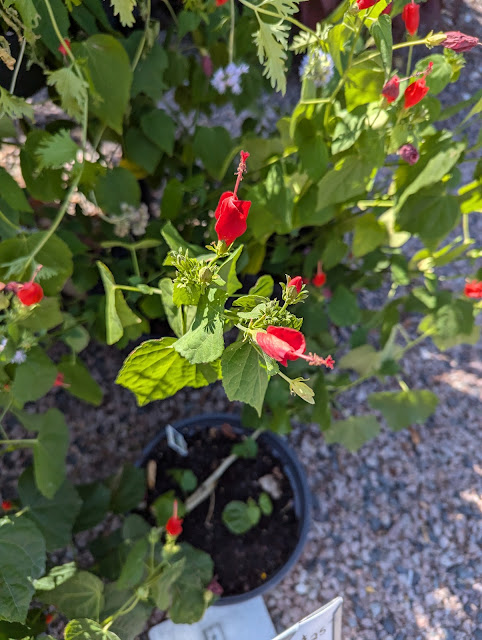"To protect your liberty, you must protect your neighbor's—even when their beliefs, choices, and path differ from yours."
In a time when freedoms can feel increasingly at risk, each of us has a responsibility to protect liberty, regardless of our political leanings. Inspired by my reading of On Tyranny by Timothy Snyder, below are 20 actions designed to help preserve some liberties and safeguard personal rights. This isn’t a checklist meant to overwhelm or feel impossible to complete—it’s a collection of ideas to provide focus, especially on days when hope feels distant. May you find something here that sparks action and strengthens your commitment to preserving democracy—today and for future generations.
Chapter 1: "Do Not Obey in Advance"
Action: Ask yourself if there's a situation where you
have been tempted to stay silent when you should speak up. For example, after years of political drama, it might
feel easier not to challenge biased comments or misinformation. But
choose today to commit to confronting misinformation and prejudice whenever you
encounter it. Why: Adapting our values without question can gradually
erode critical thinking. By making a conscious choice like this, we strengthen
our ability to resist complacent compliance.
Chapter 2: "Defend Institutions"
Action: Choose an institution you value—like local libraries, public education, or independent journalism—and support it by attending events, donating, or raising awareness. History shows that even democratically elected leaders may not respect the system or hold up the institutions that got them there. So we need to defend and support them. Why: Strong institutions safeguard democratic principles. By actively supporting them, you help build a foundation that resists shifts toward dominion authority.
Chapter 3: "Beware the One-Party State"
Action: Support movements pushing for electoral reforms, such as ranked choice voting or campaign finance reform, to encourage political diversity and fairer elections. For example, groups like FairVote advocate for changes that ensure elections reflect the full spectrum of citizens’ voices. Why: Electoral reform strengthens democratic participation, reduces partisan dominance, and helps protect against the rise of a one-party state.
Chapter 4: "Take Responsibility for the Face of the World"
Action: Build community and strengthen the social safety net around you. Support your neighbors, assist elderly community members, host community dinners, or organize a beautification project to foster relationships. By promoting mutual care and support, you strengthen the social fabric that sustains us. These actions don’t need to be politically focused. Why: Our community relationships shape our environment. Small acts of kindness and engagement reinforce positive values, fostering shared responsibility and discouraging divisiveness.
Chapter 5: "Remember Professional Ethics"
Action: Decide early to stand by your professional ethics, even under pressure. If asked to compromise your values, take a stand—whether by saying no, suggesting alternatives, or reporting misconduct. For example, during the January 6th insurrection, some officers faced the moral dilemma of whether to engage or stand back, while also navigating the internal pressures and confusion of the day. In your own profession, there may come a time where your ethics are tested. Decide now to stand firm, even if it means standing in the way of political pressure or unclear directives. Why: Upholding ethics builds trust and integrity, ensuring a just society. By staying true to your principles, you strengthen your profession and its role in the community.
Chapter 6: "Be Wary of Paramilitaries"
Action: Be alert to any groups forming militias, or those hired or acting as self-appointed authorities in your area. This includes private security firms or groups that take on a role outside of lawful authority. Follow organizations that monitor extremist groups, like the Southern Poverty Law Center (SPLC) or Anti-Defamation League (ADL), which track hate groups and provide valuable resources to the public.
Why: Paramilitary action groups and hired private security forces undermine lawful authority, often creating mob mentalities that bypass legal checks. An armed force outside of the police can increase division and fear.
Chapter 7: "Be Reflective if You Must Be Armed"
Action: Review your local and state laws on self-defense and firearm use, and be reflective about the consequences of using deadly force. Consider the ethical and social implications of bearing arms, and weigh the risks of escalation in a time of political and social unrest. If you don’t own a firearm, focus on non-violent safety measures to protect your household and community. Why: A thoughtful understanding of laws ensures responsible choices and prepares us for safety without escalating violence. Being aware of the risks helps us navigate these decisions in a way that supports peace and democracy.
Chapter 8: "Stand Out"
Action: Create a "Personal Inspiration Board" focused on themes like liberty, justice, and democracy. Gather images, quotes, or articles. You can make a physical board or one digitally for your desktop. Update it as new ideas inspire you. If you're tech-savvy, experiment with AI tools to generate unique images, like the one I created above. Let this board serve as both a source of inspiration and a call to action. Why: This board acts as a visual anchor for your values and aspirations, helping you stay engaged with the causes you care about. It offers a creative and personal way to reflect on how you can make a difference, and provides a visual cue to act when needed.
Chapter 9: "Be Kind to Our Language"
Action: Be aware when officials or groups attempt to restrict terms. (e.g., “diversity,” “inclusive,” or “equity” such as in Texas SB17). Defend language that unites us and voice your opposition to efforts that narrow our viewpoints. Why: Words shape our thoughts. Protecting the freedom of language encourages open-minded dialogue, our independent thought, and resists the narrowing of perspectives.
Chapter 10: "Believe in Truth"
Action: Dive into the vast world of books! Be alarmed when books or curriculum topics are banned, as this signals an attempt by certain groups to control what others can think, read, and learn. Why: Both non-fiction and fiction offer profound lessons. Reading helps counter the constant barrage of social media and the shallow soundbites of the internet. A well-rounded consumption of books strengthens your ability to think critically and resist manipulation.
Chapter 11: "Investigate"
Action: Fact-check sources reporting major events or political decisions. Commit to reading articles from at least three different partisan outlets to gain perspectives from across the political spectrum. Consider subscribing to an independent news source, such as 1440 News and ProPublica, or supporting independent journalists. Why: A well-rounded news diet sharpens critical thinking and highlights inconsistencies. Diverse viewpoints prevent single-narrative bias and encourage a fuller understanding of events.
Chapter 12: "Make Eye Contact and Small Talk"
Action: Lean into your close-knit community for support, but also make it a point to engage with people outside your social or political bubble each day. Why: Conversations with a diverse range of individuals help broaden and strengthen everyone's worldview. If you keep to yourself and don’t share your own perspective, others may remain trapped in their biases. Without each other to engage with new ideas, personal growth stagnates, fostering prejudice and narrow views. Building connections nurtures trust, understanding, and resilience in these divisive times.
Chapter 13: "Practice Corporeal Politics"
Action: Attend a local event, rally, or town hall to show visible support for issues you care about. Online activism is important, but it’s not enough. Be physically present at community events to send a stronger message that you are committed to the cause. Show leaders that the issue can’t be ignored. Why: In-person involvement is powerful. Your presence demonstrates that people care enough to act, making it harder for leaders to dismiss the community’s needs. It also strengthens solidarity and gives your voice more weight in shaping democratic change.
Chapter 14: "Establish a Private Life"
Action: Reclaim a private life away from constant digital monitoring. Pick a day to go offline entirely—no social media, browsing, or streaming. Spend time outdoors, with family, or exploring a new hobby. Take proactive steps to secure your data and protect your personal information. Consider shifting away from older sites that can often be filled with bots and try alternatives like BlueSky. Why: Maintaining privacy safeguards your freedom, autonomy, and mental well-being.
Chapter 15: "Contribute to Good Causes"
Action: Select a cause or charity committed to justice or equality and make a small, reoccurring donation. Consider non-partisan groups like the Brennan Center for Justice or The American Civil Liberties Union (ACLU), which defend voting rights and civil liberties across the political spectrum. Why: Even if small, consistent financial support strengthens the work of organizations that protect individual rights and promote justice.
Chapter 16: "Learn from Peers in Other Countries"
Action: Research a democracy-focused movement outside America. Examples could be researching how Finland reformed its education system to increase civic literacy or Sweden's push to make voting days national holidays to increase voter turnout. Why: Observing other democracies shows us what’s possible. We gain inspiration and ideas that strengthen our understanding of democratic resilience.
Chapter 17: "Listen for Dangerous Words"
Action: Challenge divisive, lazy language that demonizes groups—like calling immigrants "invaders," mocking transgender citizens, or dismissing ideas by labeling them with phrases like "woke nonsense" or "an agenda" without meaningful discussion. Speak out against hate speech and encourage respectful dialogue. Why: Words shape perceptions. Challenging harmful language, especially with family and friends, prevents dehumanization and strengthens democracy by fostering respect, understanding, and thoughtful communication.
Chapter 18: "Be Calm When the Unthinkable Arrives"
Action: Prepare for potential civil unrest or crises by organizing essential documents like passports, birth certificates, and medical records. Keep some cash on hand and understand your rights, whether you’re a citizen or non-citizen. Talk about emergency plans as a family to stay calm and respond strategically. Why: Civil unrest often emerges unexpectedly, catching people off guard. Being informed and prepared allows you to act swiftly, protecting yourself and your loved ones.
Chapter 19: "Be a Patriot"
Action: We are shaping the world that younger generations will inherit, and they may feel uneasy in the wake of recent election responses. Mentor or support a teen or young adult in your community. Take time to teach them about civic duties and how they can contribute. Why: Mentoring young people instills a sense of civic responsibility, pride in living in a democratic society, and the importance of participation. Even if they’re not old enough to vote yet, encouraging them to stay informed and engaged on a level of their age could inspire them to uphold the values of democracy, equality, and justice in the future.
Chapter 20: "Be as Courageous as You Can"
Action: Start a "courage journal/page" where you track and celebrate small acts of courage you take in the weeks ahead—whether it's standing up for someone, speaking your truth, or simply trying something new. Why: Documenting your own acts of courage or engagement boosts confidence and helps you recognize how bravery manifests in everyday life, empowering you to take even bolder steps.
"Let’s walk a hope-filled path by defending liberty today,
even if our steps are small."




















